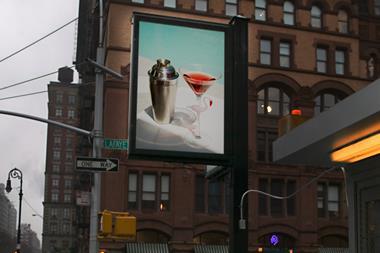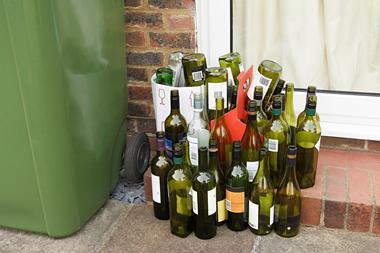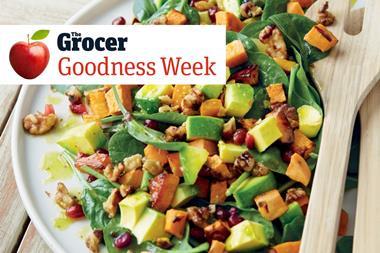Hidden away down a winding lane in Derbyshire, Steve Croot and his rural retail palace are showing just how much you can do with good-quality local produce and your own labelling machine
You have to admire Steve Croot, a man who risked everything to create a very fine farm shop and has been rewarded with almost immediate success.
Croot used to be the technical manager of herbs and salads at Safeway, and was so involved in his passion for all things green and pungent that about eight years ago he started to grow herbs and infuse them into oils. In 2002, he left Safeway and turned his full attention to this pastime, selling the oils through his own company Fieldhouse Foods and winning seven Great Taste Awards over the years.
But you can't keep a good retailer down. As Croot laboured away at his bottling plant, he started to yearn for the sight of well-stocked aisles and the fun of the stock check. His gaze turned to a chunk of spare land on his father-in-law's farm in the beautiful Derbyshire countryside, and he decided to slake his retailing thirst with a farm shop. But his ambition stretched beyond simply flogging veg from a shed this was to be a rural retail palace.
Of course, such a scheme required a huge amount of cash and Croot re-mortgaged his house and borrowed everything he could to raise the capital. Looking around the store, I wondered aloud whether this might have been around the £1m mark and, although he knocked me back swiftly, I suspect I am not far off.
Once the money was raised, plans were drawn up, the fitting was done and the stock bought. Then, on 27 June 2008, Croot turned the sign from Closed to Open. It was a nervous time. All that investment, all that stock and all those staff are down a very long drive off the main road, with the only indicator of their existence a sign measuring just 1m by 75cm thanks to local council restrictions. I sailed past the entrance twice on the day of my visit.
But once the punters started coming, they came in a flood and soon family members had to help out by acting as car park attendants. At the beginning of October this year, 15 months after opening, Croots greeted its 100,000th customer and turnover in the first year alone was more than £1m. Croot reckons he will be 15% up on that at the end of his second full year.
So what is the secret of the store's success? It sure isn't signage, even though he is now pushing for one of those brown 'point of interest' signs. No, what makes the shop so great is its focus on quality local produce. He has two dedicated butchers, who are also in charge of Croots' home-cured ham, pies and sausages lines. Croot toyed with the idea of selling pre-packed meat, but decided people would be more likely to make the journey to the shop if there was a decent butcher at the end of it. The decision was a wise one. The butcher counter now generates 35% of his turnover.
He gets beer from local breweries, one of which is "a bloke in a garage-sized micro brewery", oils from his own company (which is being run by someone else to allow him to focus his energies on the shop) and jellies from a lady in a neighbouring village who works out of her kitchen and sells him everything she makes.
I am sure many of you reading this already see the benefit of local produce and sell it in your own stores, but the thing that truly impressed me was Croot's attention to branding. Despite being a one-shop operation, he not only has his own brand, but has also taken the brilliant step of buying his own labelling machine.
So the jellies from the lady in the next village go into Croots-branded jars and the beer from the garage micro-brewery sells as Croots Farm Pig in a Bottle ale. Croot says his four-strong range of bottled beers sell well and he has sold 1,000 bottles of Pig in a Bottle since launching it on 25 May. This simple exercise in branding is something I think any independent retailer could easily apply to their own business.
Croots is doing well, but there is room for improvement. One of the problems of building a business from the ground up is that you can only make informed guesses on demand. Croot only dedicated a small area of his 1,800 sq ft floor space to the Croots Kitchen coffee shop, which was a mistake. "We regularly turn people away who want to sit down with a drink and a cake, so if I could do anything again I'd make the coffee area twice the size," he says. "But as extending the shop would cost me about £70,000, it's not something I'm intending to do in the near future."
He doesn't do much advertising either, relying instead on word of mouth and tastings to draw in new customers.
And if I were being really critical, I would say the fruit and veg area is a bit ordinary and doesn't match the rustic quality of the rest of the store. But overall, Croots is a brilliant lesson in how to sell high-quality, locally sourced produce. Anyone attempting to do the same should pay it a visit just keep a sharp eye out for the sign.
Sign in to comment on this article
Not logged in before? Register for FREE guest access today.
You will be able to:
- Read more stories
- Receive daily newsletters
- Comment on stories
Advert













No comments yet